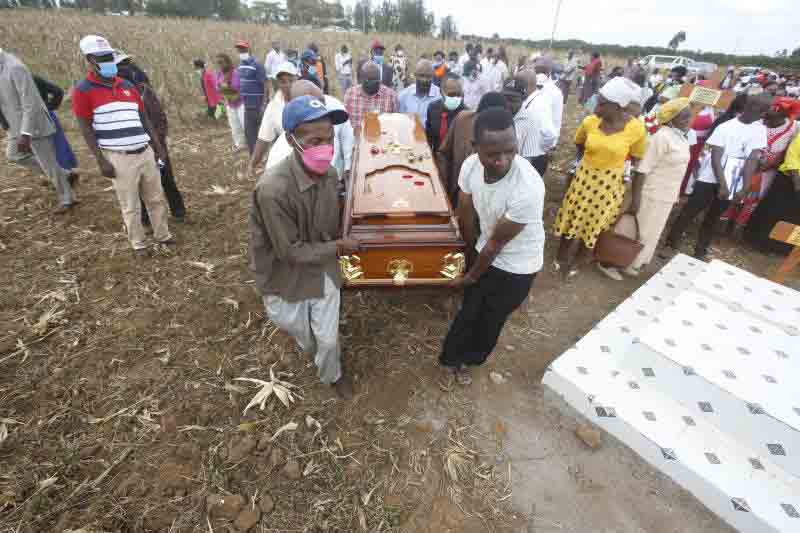×
The Standard e-Paper
Stay Informed, Even Offline

Mourners carry a casket bearing the body of Joseph Karanja at Piave in Njoro on December 13. Karanja died after consuming illicit brew at Jawatho. [Kipsang Joseph, Standard]
Over the years, cases of death resulting from consumption of illicit liquor have been isolated in parts of Nakuru County. This year, however, was different following two tragedies at liquor dens that claimed the lives of nearly 20 people, leaving various villages dotted with graves.